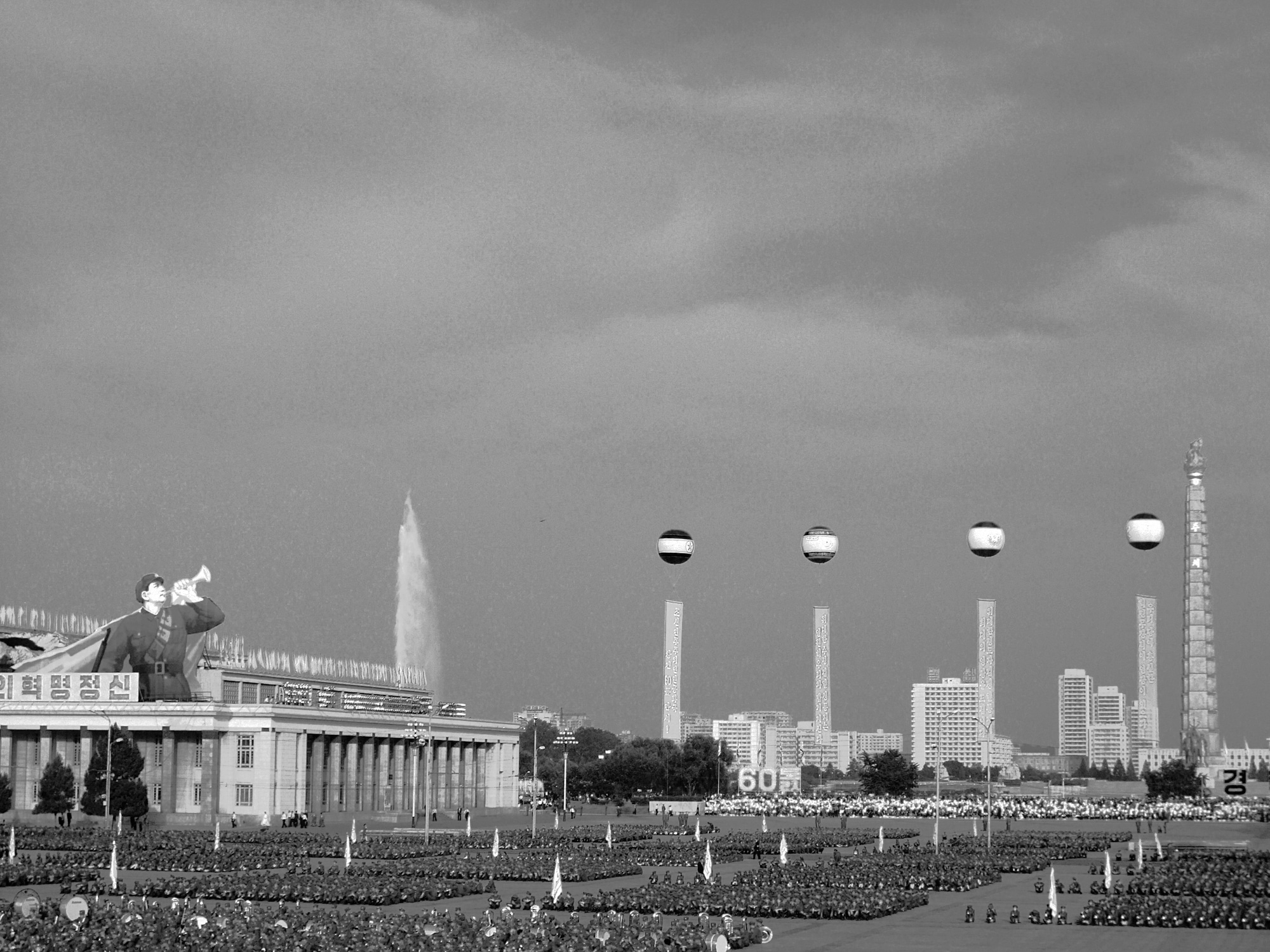La confusa strategia politica dell’amministrazione Biden in Medioriente, sommata all’incapacità dell’alleato francese, ha come risultato il consolidamento di una classe politica avida e corrotta che paralizza – e polarizza ulteriormente – un paese che negli ultimi anni non è stato risparmiato – volutamente o non – da nessuna calamità e sciagura.
La situazione attuale è talmente grave da richiedere l’intervento di Papa Francesco, un Papa che lo scorso marzo visitò il remoto Iraq rivendicando per il Vaticano un ruolo di primaria importanza sulla scena politica internazionale in barba a tutti.
La giornalista libanese Raghida Dergham, pubblicista di The National News e chairman del Beirut Institute, citata dal Il Tazebao numerose volte nell’analisi della politica estera, si batte senza tregua e a gran voce per la sua terra. È sollevata che l’amministrazione Biden abbia finalmente preso coscienza – anche se non del tutto, perché gli USA sono troppo concentrati sull’Iran e sul restauro dell’accordo sul nucleare – della situazione libanese e ci informa della visita degli ambasciatori americano e francese a Beirut in Arabia Saudita, a Riyadh per assicurarsi l’assistenza del regno saudita nel trovare una soluzione alla lunga crisi.
Il Libano, però, non ha bisogno di essere salvato solo dalla stagnante situazione economica in cui versa già da diverso tempo, ma da tutta una serie di seri problemi e l’entrata in vigore di un “nuovo” accordo sul nucleare iraniano tenacemente voluto e sostenuto dagli USA in primis e dagli alleati europei, di conseguenza, non fa altro che aumentare l’influenza della Repubblica Islamica nel paese del cedro tramite la sua estensione territoriale e politica, Hezbollah, forza non secondaria nel paese ed etichettato dagli stessi USA come gruppo terroristico.
Firenze – Beirut. A colloquio con Georgi Azar (Arab News) – Il Tazebao
Biden, che si è limitato al ruolo di spettatore passivo alla tragedia libanese, ha delegato il ruolo di “Salvatore” alla Francia – «il suo ex padrone coloniale» [1] – che, tuttavia, si è rivelata non essere all’altezza del ruolo. Macron, infatti, ha fatto un passo indietro rispetto a quelle che erano state le sue promesse iniziali (sanzioni contro i politici e le personalità responsabili dell’esplosione del porto nell’agosto scorso).
L’attenzione della Chiesa
L’unica voce autorevole in capitolo e che merita di essere presa in considerazione, è quella di Papa Francesco che, a differenza degli altri players coinvolti, ha accolto e ascoltato l’appello del patriarca maronita Bechara Al Rai che ha portato avanti una campagna per assicurare la “neutralità” del suo paese – una politica di rimanere fuori dai conflitti regionali e preservare la sua sovranità – al fine di salvarlo dal caos totale. Non dimentichiamoci che il Libano confina con quasi tutte le aree attualmente in conflitto nella regione, aree di vitale importanza per gli States e per i competitors degli States. Abbandonare il Libano al suo cupo destino equivarrebbe a servirlo, se non addirittura regalarlo, su un piatto d’oro all’alleanza russo-iraniana. A quella Russia da sempre nemica degli USA. Non si può più dire la stessa cosa dell’Iran!
Dergham, che dimostra più buon senso del presidente americano, suggerisce a Biden e compagni europei di abbandonare la politica delle sanzioni ad personam, sostituendola con una politica molto più efficace che vada a bloccare l’accesso alle ingenti ricchezze che i politici libanesi hanno «parcheggiato sul continente» [2].
Sempre secondo la giornalista libanese, l’amministrazione Biden dovrebbe anche ignorare le richieste francesi di far cadere il Magnitsky Act – uno strumento legislativo per sanzionare individui potenti – quando si tratta del Libano perché lasciarlo cadere significherebbe effettivamente che i politici di Beirut possono agire impunemente. La strana mossa di abbandonare le sanzioni che l’amministrazione Trump aveva adottato (ultimo tentativo, in vista delle elezioni che lo hanno portato a lasciare la Casa Bianca, della sua amministrazione per ostacolare l’influenza di Teheran in Libano) e sostituirle con divieti di viaggio e altre misure minori non farà che aprire le porte ad affari illeciti.
Agli inizi di febbraio, le sanzioni americane trumpiane contro i politici libanesi, avevano colpito Gebran Bassil, un cristiano maronita, leader del Movimento Patriottico Libero e genero del presidente Michel Aoun, colpendo vicino al vertice della struttura di potere del Libano [3].
L’ascesa in campo di Riyadh, palesemente in funzione anti-iraniana, potrebbe aumentare la pressione già esercitata, con scarso successo, da Parigi e Washington sull’élite politica di Beirut, ma «l’Arabia Saudita ha bisogno di garanzie» [4], proprio per questo si muove con molta cautela, a differenza dell’amministrazione americana che sembra un elefante in una cristalleria: imprevedibile, confuso e temporeggiatore a spese del già logorato popolo libanese.
English version
The confused political strategy of the Biden administration in the Middle East, added to the inability of its French ally, results in the consolidation of a greedy and corrupt political class that paralyzes – and further polarizes – a country that in recent years has not been spared – intentionally or not – from any calamity or disaster. The current situation is so serious as to require the intervention of Pope Francis, a Pope who last March visited remote Iraq claiming for the Vatican a role of primary importance on the international political scene in defiance of all.
Lebanese journalist Raghida Dergham, columnist for The National News and chairman of the Beirut Institute, quoted by The Tazebao numerous times in its analysis of foreign policy, fights relentlessly and loudly for her land. She is relieved that the Biden administration has finally become aware of the Lebanese situation – although not completely, because the US is too focused on Iran and the restoration of the nuclear agreement – and informs us of the visit of the American and French ambassadors to Beirut in Saudi Arabia, to Riyadh to secure the assistance of the Saudi kingdom in finding a solution to the long-standing crisis.
Lebanon, however, does not need to be saved only from the stagnant economic situation in which it has been for some time, but from a whole series of serious problems and the entry into force of a ‘new’ agreement on the Iranian nuclear power tenaciously wanted and supported by the U.S. first of all and by the European allies, consequently, does nothing but increase the influence of the Islamic Republic in the country of the cedar through its territorial and political extension, Hezbollah, not a secondary force in the country and labelled by the same U.S. as a terrorist group.
Biden, who limited himself to the role of passive spectator to the Lebanese tragedy, delegated the role of “Savior” to France – “its former colonial master” [1]-which, however, turned out not to be up to the role. Macron, in fact, took a step back from what had been his initial promises (sanctions against the politicians and personalities responsible for the port explosion last August).
The only authoritative voice on the table, and one that deserves consideration, is that of Pope Francis who, unlike the other players involved, has welcomed, and heeded the call of Maronite Patriarch Bechara Al Rai who has been campaigning to ensure his country’s “neutrality” – a policy of staying out of regional conflicts and preserving its sovereignty – to save it from total chaos. Let us not forget that Lebanon borders almost all the current conflict areas in the region, areas of vital importance to the States and the States’ competitors. Abandoning Lebanon to its gloomy destiny would be tantamount to serving it, if not actually giving it away, on a golden platter to the Russian – Iranian alliance. To that Russia that has always been an enemy of the USA. The same can no longer be said about Iran!
Dergham, who shows more common sense than the American president, suggests to Biden and his European comrades to abandon the policy of ad personam sanctions, replacing it with a much more effective policy of blocking access to the enormous wealth that Lebanese politicians have “parked on the continent” [2].
Also, according to the Lebanese journalist, the Biden administration should also ignore French calls to drop the Magnitsky Act – a legislative tool to sanction powerful individuals – when it comes to Lebanon because dropping it would effectively mean that politicians in Beirut can act with impunity. The strange move of dropping the sanctions that the Trump administration had adopted (his administration’s last attempt, in the run-up to the elections that led him to leave the White House, to thwart Tehran’s influence in Lebanon) and replacing them with travel bans and other minor measures will only open the door to illicit deals.
In early February, Trumpian American sanctions against Lebanese politicians had hit Gebran Bassil, a Maronite Christian, leader of the Free Patriotic Movement and son-in-law of President Michel Aoun, hitting near the top of Lebanon’s power structure [3].
The rise of Riyadh, clearly in anti-Iranian function, could increase the pressure already exerted, with little success, by Paris and Washington on the political elite of Beirut, but “Saudi Arabia needs guarantees” [4], that is why it moves with great caution, unlike the American administration that looks like an elephant in a china shop: unpredictable, confused and stalling at the expense of the already worn Lebanese people.
Bibliografia
[1] Raghida Dergham, “Are the US and France serious about saving Lebanon?”, The National News dell’11 luglio 2021.
[2] Ibidem.
[3] Pranshu Verma and Ben Hubbard, “U.S. Imposes Sanctions on Lebanese Politician Allied With Hezbollah”, The New York Times del 4 febbraio 2021.
[4] Raghida Dergham, “Are the US and France serious about saving Lebanon?”, The National News dell’11 luglio 2021.
Resta sempre aggiornato con Il Tazebao
Unisciti al gruppo Telegram per ricevere i nostri approfondimenti appena usciti. Instagram sarà il nostro supplemento fotografico. I video animano il nostro canale YouTube. Infine, inviando una mail all’indirizzo della redazione (redazione@tazebao.francescoacciai.com) puoi ricevere la newsletter settimanale.




